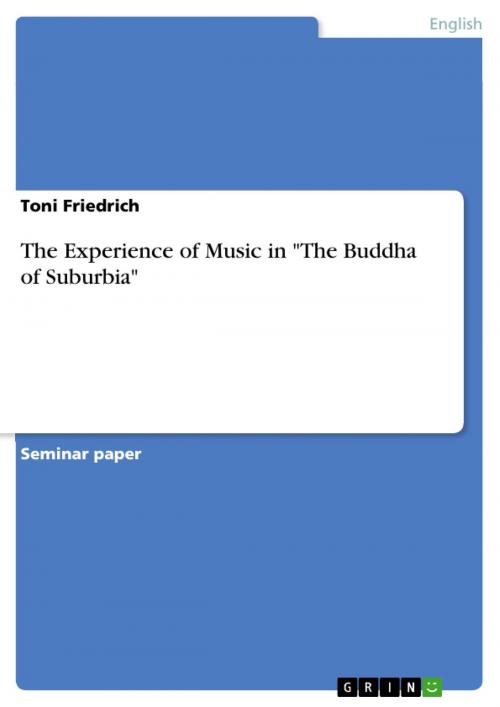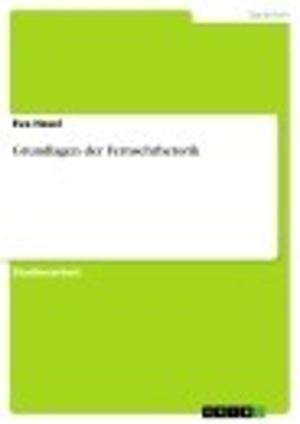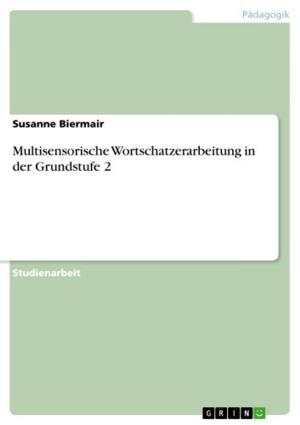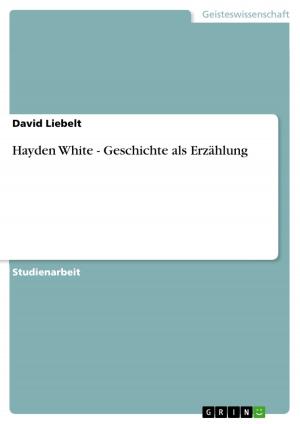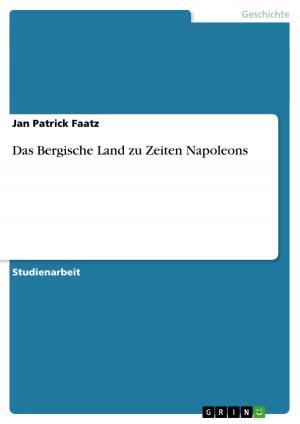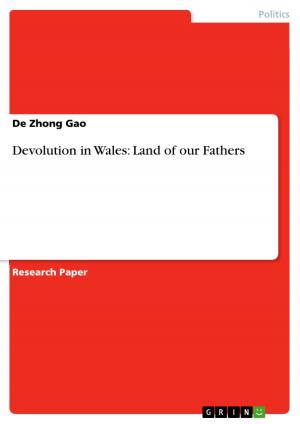The Experience of Music in 'The Buddha of Suburbia'
Fiction & Literature, Literary Theory & Criticism, British| Author: | Toni Friedrich | ISBN: | 9783656094869 |
| Publisher: | GRIN Verlag | Publication: | January 3, 2012 |
| Imprint: | GRIN Verlag | Language: | English |
| Author: | Toni Friedrich |
| ISBN: | 9783656094869 |
| Publisher: | GRIN Verlag |
| Publication: | January 3, 2012 |
| Imprint: | GRIN Verlag |
| Language: | English |
Seminar paper from the year 2011 in the subject English Language and Literature Studies - Literature, grade: 1,0, Martin Luther University, language: English, abstract: Issued in 1990 Hanif Kureishi´s novel The Buddha of Suburbia has become a world-acclaimed masterpiece ever since. It´s protagonist, Karim, takes the reader on his riveting journey to discover and explain life of the seventies in and around London. The author masterfully depicts the multiple cultural facets this time had to offer and creates a plot replete with stories of ethnicity, class and gender. However, one element seems to be of peculiar importance in its reoccurring implementation within the story - music. This paper is intended to examine the element of music and attempts to determine the role it plays within the world Kureishi illustrates. In order to fully grasp the element of music within the book it will be necessary to have a wider look on the phenomenon first. How can music in a most general sense be described and what makes it such a meaningful subject matter for scientists of linguistics, philosophy and anthropology? In a second step the paper will try to find reasons why Kureishi might have decided to use this motif at such length and what messages he tries to bring across. However, the major part of the paper will, of course, be dealing with the novel: What are the major themes that are related to music? In how far is music affiliated with the broad spectrum of culture that Kureishi draws in his book? What subcultures can be detected and to what extent are they influenced by music? The single most intriguing aspect connected to this issue is the character of Charlie. That is why his odyssey through a life so profoundly determined by music will be especially focused on. What effect does music have on the decade of his life pictured in the novel? What stages does he go through and what does the author provide the reader with in order to interpret Charlie´s decisions, the development of his character, and his final state at the end of the book. Although The Buddha of Suburbia will be the main source of the investigation, the articles of Bart Moor-Gilbert and Sussane Reichl, which discuss Kureishi´s novel, will be consulted, too. Moreover, various monographies and papers dealing with the issue of music and culture will also be substantial to the examination
Seminar paper from the year 2011 in the subject English Language and Literature Studies - Literature, grade: 1,0, Martin Luther University, language: English, abstract: Issued in 1990 Hanif Kureishi´s novel The Buddha of Suburbia has become a world-acclaimed masterpiece ever since. It´s protagonist, Karim, takes the reader on his riveting journey to discover and explain life of the seventies in and around London. The author masterfully depicts the multiple cultural facets this time had to offer and creates a plot replete with stories of ethnicity, class and gender. However, one element seems to be of peculiar importance in its reoccurring implementation within the story - music. This paper is intended to examine the element of music and attempts to determine the role it plays within the world Kureishi illustrates. In order to fully grasp the element of music within the book it will be necessary to have a wider look on the phenomenon first. How can music in a most general sense be described and what makes it such a meaningful subject matter for scientists of linguistics, philosophy and anthropology? In a second step the paper will try to find reasons why Kureishi might have decided to use this motif at such length and what messages he tries to bring across. However, the major part of the paper will, of course, be dealing with the novel: What are the major themes that are related to music? In how far is music affiliated with the broad spectrum of culture that Kureishi draws in his book? What subcultures can be detected and to what extent are they influenced by music? The single most intriguing aspect connected to this issue is the character of Charlie. That is why his odyssey through a life so profoundly determined by music will be especially focused on. What effect does music have on the decade of his life pictured in the novel? What stages does he go through and what does the author provide the reader with in order to interpret Charlie´s decisions, the development of his character, and his final state at the end of the book. Although The Buddha of Suburbia will be the main source of the investigation, the articles of Bart Moor-Gilbert and Sussane Reichl, which discuss Kureishi´s novel, will be consulted, too. Moreover, various monographies and papers dealing with the issue of music and culture will also be substantial to the examination
